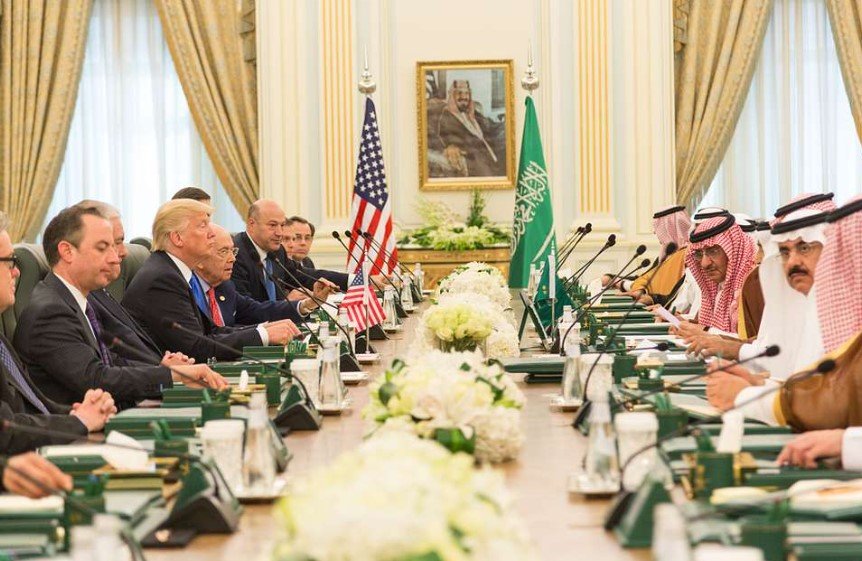President Donald Trump’s recent whirlwind tour of Saudi Arabia, Qatar, and the UAE stunned many, especially in Israel. The generous arms deals and warm receptions for Gulf leaders left Prime Minister Benjamin Netanyahu in a tough spot, grappling with an uncertain new regional dynamic.
Trump’s visit wasn’t just a diplomatic courtesy call — it was about business, power shifts, and strategic recalibration. For Netanyahu, the buzz surrounding the $200 billion-plus arms package Trump offered Saudi Crown Prince Mohammed bin Salman might have felt like a jolt. Suddenly, America’s hand seemed less exclusively tied to Israel, raising questions about the future of regional alliances.
When America Makes a Big Bet Elsewhere
Trump’s three-country swing in the Gulf wasn’t exactly a secret. Everyone expected some fireworks. Still, the sheer scale of the arms deals and investments left many scratching their heads. Saudi Arabia, the UAE, and Qatar collectively promised to pour hundreds of billions into American defense contractors and tech firms. That’s a windfall for U.S. industries, sure, but what about the fallout?
Israeli leaders, historically the closest American allies in the region, suddenly found themselves somewhat sidelined. Netanyahu, known for tight control over diplomatic messaging, has been unusually quiet about his reaction. Whether this silence hides frustration or strategic patience is anyone’s guess.
But here’s the kicker: The Gulf states are not just shopping for tanks and jets. They’re recalibrating their ties, balancing their relationships with both the U.S. and Israel while keeping Iran firmly in their crosshairs. Trump’s visit tacitly acknowledged this balancing act, rewarding Gulf leaders for playing the geopolitical chessboard their way.

Shifting Sands and Unseen Ripples
What Trump offered was not just weapons — it was a statement. By granting Saudi Arabia advanced American military hardware, the U.S. signaled a willingness to deepen ties with Gulf powers without Israel’s input. This is a major shift. For decades, Israel’s security concerns often shaped U.S. arms sales policies in the Middle East.
Now, the narrative feels different. Netanyahu’s longstanding strategy of leaning heavily on American support as a security blanket might be facing new challenges. The Gulf states want to assert their own strength, and Trump’s approach seemed to validate that ambition.
-
This recalibration means Israel must rethink its regional stance.
-
It’s no longer enough to be America’s undisputed ally in the Middle East.
-
Gulf countries, flush with cash and ambition, want more say in the game.
This isn’t just about hardware. It’s about influence.
Netanyahu’s Dilemma: To Speak or Stay Silent?
Netanyahu has a history of tight-lipped diplomacy, especially when things don’t go his way publicly. So, it’s no surprise that he’s been mum since Trump’s visit. But behind closed doors? Reports suggest unease.
Think about it: A close ally handing over the biggest weapons deals to your neighbors while your own requests seem to get a polite nod. That’s got to sting. Some Israeli officials reportedly feared this could weaken Israel’s traditional leverage with the U.S.
One can imagine Netanyahu weighing his options carefully. Publicly, he must maintain the image of unbreakable ties with Washington. Privately, he might be strategizing how to adapt to this new, messier reality.
It’s a tricky balance. He can’t afford to alienate Trump supporters in the U.S., nor can he ignore the emerging power centers in the Gulf.
What This Means for the Middle East’s Future
So, what does all this mean? Well, the Middle East’s chessboard just got more complicated. With Saudi Arabia and the UAE getting the green light to beef up their arsenals, the old scripts of alliance are being rewritten.
Israel faces questions about how it will engage with Gulf states going forward. Some see opportunity here, as warming ties between Israel and Gulf nations have been quietly growing in recent years. Others worry this might trigger new rivalries or misunderstandings.
Here’s a quick look at the shifting picture:
| Country | Trump Visit Outcome | Impact on Israel |
|---|---|---|
| Saudi Arabia | $110 billion arms deal | Potentially less reliant on Israel, more independent stance |
| UAE | $50 billion investment & military | Growing Gulf influence, complicating Israel’s role |
| Qatar | Diplomatic talks and investment | Balances regional power, wary of Iran and Israel |
It’s a delicate dance, with each player trying not to step on toes while positioning for advantage.
The visit also highlighted the economic motivations behind Trump’s diplomacy. For all the pomp, the $200+ billion in arms deals and tech investments speak volumes about where priorities lie.
Israel is left pondering how to adjust, possibly seeking new alliances or deepening existing ones to stay relevant.
